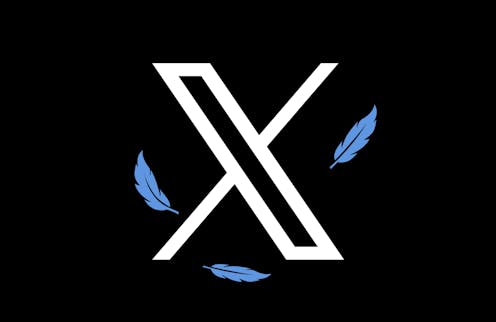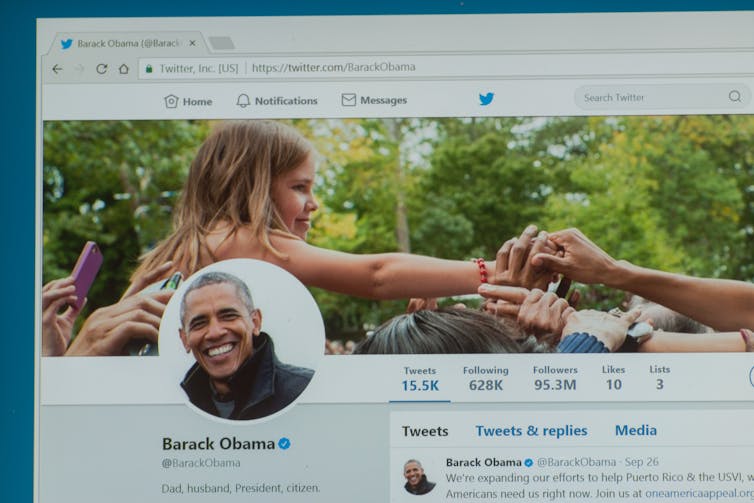
Alas, poor Twitter; we knew it well. Or, at least, we thought we did. Despite never occupying more than 10% of social media’s online presence, western audiences are very aware of the platform. That’s not least because of the way that the mass media echoes and amplifies the controversies and outrage born on Twitter.
Well before the fury at current owner Elon Musk’s changes, the platform occupied a strange dual position in our consciousness. It was a place for the slow murmurings of a sleepy populace gossiping around the village well, but also a forum for vicious, poisonous invective. Birdsong calms and soothes us, but also conveys a warning: “This is my tree. Come any closer and I’ll attack!”
Perhaps, then, the demise of the Twitter brand was inevitable. A brand acts like a scar in the mind of a consumer, a reminder of past encounters. Allowing the “shadow side” of a brand to be expressed confuses us. It perhaps reminds us of our inner demons – to which we gave vent on the website.
This Jekyll and Hyde nature of Twitter has been both embraced and confronted by Musk. Instead of limiting the bile, he has arguably acted in ways that have enabled its release.
Twitter emerged from the ideas of several employees at the podcasting company Odeo in 2006. Those employees included Jack Dorsey, Noah Glass, Biz Stone and Evan Williams. After encouraging an influential group of tech industry figures to become early adopters, Twitter subsequently experienced rapid growth, so that, by early 2010, users were sending 50 million tweets a day.
That year, Twitter also overhauled its interface, allowing images and video to be viewed within the website for the first time. Celebrities started to sign up, opening up new ways for fans to interact with their favourite stars.
But the realisation by politicians that Twitter was the perfect place for disseminating concise messages and comments brought a whole new dimension to the site. They would eventually include the US president: Barack Obama joined the platform in 2015, tweeting from the @POTUS account.

His successor in the role, Donald Trump, was just as enthusiastic in his use of the platform, but was much more direct in his approach, even using it to announce policies. There’s even evidence Twitter played a key role in his election success.
By this point, Twitter had well and truly become the digital “town square” Musk would later talk of when announcing his plan to buy the platform in 2022.
As well as creating a platform for politicians, it also played a role in political activism around the world, for example, in the Arab Spring revolutions of 2011 (although it’s precise importance has been disputed). The Egyptian government considered Twitter significant enough to respond by blocking it along with other platforms.
It also became an amplifier of disinformation and misinformation. Pre-Musk, Twitter had made several efforts to crack down on this phenomenon, as well as on trolling and hate. Among the many things levelled at Musk-era Twitter is the alleged reversal of these trends, confirmed by research but denied by Musk.
What X means for the brand
This brings us up to Twitter’s rebranding as “X”. Rebrands come and go, some attracting opprobrium, others passing fretfully into the mists of time. Often, these adventures are underwritten by a need to draw a line under old brand associations, freeing the company to become something new, different and bigger.
But these can also go wrong. In 2001, with plans to expand into overseas markets, Royal Mail changed its name to Consignia. A year later, after financial losses mounted, it changed the name back again.
In other cases, rebranding allows companies to align with wider, international requirements. In the late 1990s, after 40 years in existence, the UK sweets brand Opal Fruits changed its name to Starburst in order to align with how the product was known abroad.
In the case of X, both of these vectors seem to be in play, aligning the platform formerly known as Twitter with Musk’s ambitions for an “everything everywhere” uber-brand, while creating space for growth –- both in the economic sense and the sense of an evolution into a different product.
X is an undefined variable. It carries connotations of buried treasure, of “tech-bro” innovation, of racy explicitness. And, more than anything, it conveys potential. The abandonment of Twitter’s brand position as light entertainment, in favour of the platform’s dark side, will surely be aided and abetted by the art deco logo.
Perhaps this direction, if one believes in the genius of Musk, rather than the primacy of fortune, accurately reflects our current trajectories toward ruthlessness at best or authoritarian command and control at worst.
Perhaps the brand, aligned closely with Musk’s other endeavours, will act less as a scar, and more of a scab – a constant reminder for the billionaire that town square gatherings this large cannot be controlled or tamed.
Or perhaps it will illuminate the hollowness of this form of human communication, which sometimes resembles “antisocial media”. This could free us to return to who we really are: individuals embedded in a small social group of collaborative, supportive people, seeking to flourish and grow.
Sometimes a fire doesn’t give you a phoenix, instead it just gives you ashes. Despite media characterisations to the contrary, we, the consumers, still have choices. We do not simply, blindly, run when we hear the whistle, jumping for the next shot of dopamine. So, whether or not Twitter is really “dead”, its continued success seems harder to guarantee.
Leslie Hallam does not work for, consult, own shares in or receive funding from any company or organisation that would benefit from this article, and has disclosed no relevant affiliations beyond their academic appointment.
This article was originally published on The Conversation. Read the original article.







